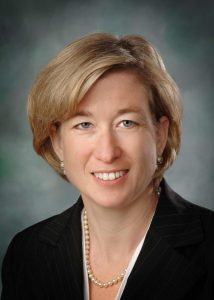AMARILLO, TX – Sometimes referred to as the “Big Three” or the “Trilogy,” DME suppliers need to always be aware of the federal anti-kickback statute, the federal beneficiary inducement statute, and the federal physician self-referral statute (“Stark”).
Anti-Kickback Statute (“AKS”)
The AKS makes it a felony to knowingly and willfully offer, pay, solicit, or receive anything of value to induce a person or entity to refer an individual for the furnishing or arranging for the furnishing of any item or service reimbursable by a federal health care program (“FHCP”), or to induce such person to purchase or lease or recommend the purchase or lease of any item or service reimbursable by an FHCP. For example, the following will likely be construed to violate the AKS:
- A DME supplier enters into a contract with a 1099 independent contractor marketing rep in which (i) the rep generates FHCP patients for the supplier and (ii) the supplier pays commissions to the rep.
- A physician refers patients (including FHCP patients) to a DME supplier. For every patient referred by the physician, the physician prepares a short written summary of the patient’s condition. The supplier pays $75 for each written summary. The DME supplier may argue that it is not paying for referrals – but rather – is paying for legitimate services (i.e., preparation of the written summary). However, courts have handed down the “one purpose” test that states that if one purpose for a payment is to reward a referral source for referrals, then the AKS is violated even if the main purpose for the payments is to pay for legitimate services.
- Assume that a hospital incurs expenses each month providing DME for indigent patients to take home with them (e.g., canes, walkers, cervical collars). The hospital desires to be relieved of this financial burden. And so the hospital enters into a preferred provider agreement with a DME supplier in which the hospital agrees to refer its discharged insured DME patients to the supplier on condition that the supplier accept all of the hospital’s discharged indigent DME patients. In this scenario, the supplier is providing “something of value” to the hospital in exchange for referrals (i.e., the supplier is relieving the hospital from the financial burden of providing DME to indigent patients).

Recognizing the breadth of the AKS, the Office of Inspector General (“OIG”) issued “safe harbors.” A safe harbor is a hypothetical fact scenario.
If an arrangement fits into the fact scenario, then as a matter of law the arrangement does not violate the AKS. If an arrangement does not fit into a safe harbor, it does not mean that the arrangement violates the AKS. Rather, it means that the arrangement needs to be carefully analyzed in light of the language of the AKS, court decisions, and other published guidance.
Look at the 1099 independent contractor marketing rep example, above. Instead of the rep being a 1099 independent contractor of the DME supplier, the rep is a bona fide W2 employee of the supplier. Assume that the supplier pays the rep a base salary plus discretionary bonuses based on a number of factors, including the generation of business.
If structured properly, this type of arrangement will fall into the Employee Safe Harbor to the AKS. The Employee Safe Harbor is premised on (i) the obligation of the supplier to supervise and control the activities of the rep and (ii) the fact that the supplier is liable for the rep’s actions performed in the course and scope of the rep’s employment duties.
Beneficiary Inducement Statute
The inducement statute imposes civil monetary penalties on a DME supplier that offers or gives anything of value to a person in which the supplier knows or should know is likely to influence the person to order an item (reimbursed by an FHCP) from the supplier. The statute has an exception…called the nominal value exception. This exception allows the supplier to provide a gift to a person on condition that the gift (i) is non-cash/non-cash equivalent and (ii) has a retail value of $15 or less. If the supplier provides multiple gifts to the same person, then the gifts, in their totality, cannot exceed $75 in retail value over a 12-month period. For example:
- A DME supplier cannot offer cash or a pre-paid debit card to a person, regardless of how much the cash is or much is loaded onto the card. Cash and/or a pre-paid card constitute “cash or cash equivalent.”
- A DME supplier can provide the following types of gifts: (i) $7.99 coffee mug, (ii) $12.99 cookbook and (iii) a $15.00 subscription to a website that assists users in adopting healthy lifestyles.
Stark
The Stark law is named after former Representative Pete Stark who authored the law. This statute states that if a physician (or an immediate family member) has an ownership interest in, or a compensation arrangement with, a provider/supplier that furnishes “designated health services,” then the physician cannot refer Medicare/Medicaid patients to the provider/supplier. DME falls within the Stark definition of “designated health services.” Note that the term “physician” includes other types of clinicians such as dentists and chiropractors. While the AKS has a number of safe harbors, Stark has a number of exceptions. Some of the Stark exceptions and AKS safe harbors mirror each other.
One of the Stark exceptions is called the “Non-Monetary Compensation Exception” (“NMCE”). This allows a DME supplier to provide gifts (non-cash/non-cash equivalent) and entertainment to a physician so long as the value of the gifts and entertainment do not exceed a certain dollar amount during the year. In 2022, the dollar amount is $452. Because the dollar amount is tied to inflation, it will increase in 2023. Assume that a physician is part of a five-physician group. The DME supplier can spend (in 2022) up to $452 on each of the five physicians. Because Stark only applies to physicians and their immediate family members, the NMCE does not apply to the physician’s staff. If the DME supplier desires to provide occasional meals and/or gifts to the staff, then the supplier needs to examine the arrangement in light of the AKS. The AKS does not have a safe harbor that mirrors the NMCE. Therefore, the supplier needs to be modest in terms of what it provides to the physician’s staff.
Tying These Statutes Together
There are a number of obvious reasons for the DME supplier to comply with the “Big Three” statutes.
- The supplier wants to avoid criminal liability under the AKS.
- The supplier wants to avoid civil liability under the Inducement Statute and Stark.
- Liability under any of these statutes can lead to revocation of the supplier’s PTAN and exclusion from the Medicare program.
Another reason to avoid violating one or more of these statutes is the position of the Department of Justice that if the supplier submits a claim that is based on actions that violate one of the Big Three statutes, then the claim becomes a “false claim” in violation of the federal False Claims Act (“FCA”). Penalties under the FCA can be massive.
AAHOMECARE’S EDUCATIONAL WEBINAR
Medicare Coding, Coverage, and Payment – A Guide to Launching Home Care Products
Presented by: Cara C. Bachenheimer, Esq., Brown & Fortunato & Jeffrey S. Baird, Esq., Brown & Fortunato
Tuesday, November 8, 2022
1:30-2:30 p.m. CENTRAL TIME
 Manufacturers are increasingly bringing to market innovative products designed to be used by patients in their homes. In order to successfully launch a new product, manufacturers must understand the impact and role of HCPCS codes, Medicare coverage, and payment rules as these will heavily influence how manufacturers can market the new product. Equally as important, DME suppliers need to recognize how HCPCS codes, Medicare coverage and payment rules will impact their ability to sell the new products. This program will take the often confusing guidelines regarding coding, coverage and payment … and break the guidelines into plain language.
Manufacturers are increasingly bringing to market innovative products designed to be used by patients in their homes. In order to successfully launch a new product, manufacturers must understand the impact and role of HCPCS codes, Medicare coverage, and payment rules as these will heavily influence how manufacturers can market the new product. Equally as important, DME suppliers need to recognize how HCPCS codes, Medicare coverage and payment rules will impact their ability to sell the new products. This program will take the often confusing guidelines regarding coding, coverage and payment … and break the guidelines into plain language.
Register for Medicare Coding, Coverage, and Payment – A Guide to Launching Home Care Products on Tuesday, November 8, 2022, 1:30-2:30 p.m. CT, with Cara C. Bachenheimer, Esq., and Jeffrey S. Baird, Esq., of Brown & Fortunato.
Members: $99
Non-Members: $129
Jeffrey S. Baird, JD, is chairman of the Health Care Group at Brown & Fortunato, a law firm with a national health care practice based in Texas. He represents pharmacies, infusion companies, HME companies, manufacturers, and other health care providers throughout the United States. Baird is Board Certified in Health Law by the Texas Board of Legal Specialization and can be reached at (806) 345-6320 or jbaird@bf-law.com.

